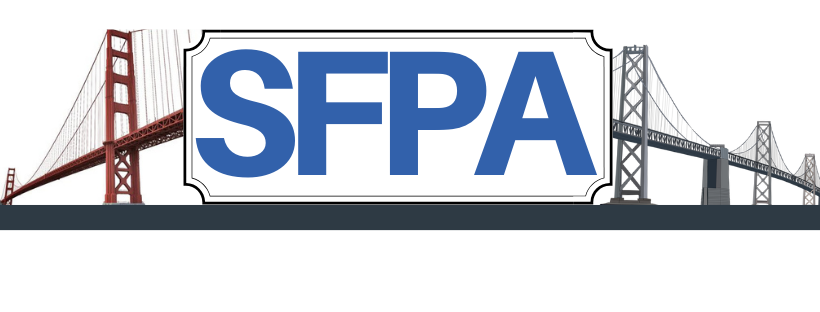Bloomberg Law
October 24, 2017
By Melissa Heelan Stanzione
Providing top-notch pop-up legal clinics to rural communities in California requires a few things: lawyers willing to volunteer time, a lot of coffee, and a few tickets for the 7 a.m. departure of the Justice Bus.
When the bus rolls up to a law firm or corporate headquarters—actual tickets not required—those boarding will embark on a several-hour trip to a rural California community.
The destination isn’t a firm-sponsored retreat or networking event but a chance for legal professionals to provide assistance to low-income residents with little or no access to legal help.
Rural legal aid clinics don’t have access to the resources that urban ones do, like law students and attorneys who can come by or set up a clinic, Julia R. Wilson told Bloomberg Law.
Wilson is CEO of OneJustice, a group dedicated to increasing legal services to those in need. It launched the Justice Bus Project in San Francisco in 2007.
The project has greatly expanded, and more than 7,100 clients in 43 counties have been served by more than 3,700 volunteers from all over the state since then, Wilson said.
The group acts as a “matchmaker” between more than 100 legal aid non-profits in California and attorney volunteers, she said.
The hope is that law firms and in-house legal departments in cities over time will include rural areas of California as an essential part of their commitment to pro bono, Wilson said.
Donuts, Team Building
After the group of about 20 volunteers boards the Justice Bus, they’re welcomed with coffee and donuts to fuel them for training during the ride.
This training differs from that offered before the trip. That online training lasts about 15 minutes, is “super targeted,”and focuses on the area of law each attorney will be working in, Wilson said.
Justice Bus volunteers can help three client groups: immigrants, veterans, and low-income seniors.
Training on the bus includes “cultural humility,” Wilson said. OneJustice staff members explain what it means to work with low-income clients and about legal and other challenges these people face, she said.
They also go over data points on the community where they’ll be working, Wilson said. Volunteers learn about the poverty in the community, the number of local attorneys, and information about the local legal aid organizations, she said.
After that, the volunteers work on team building to make sure everyone knows each other, Wilson said.
It’s interesting to hear attorneys talk about why they’re volunteering, Wilson said. A lot of the volunteers come from rural areas and bring a “personal rural perspective” to the work, she said.

Waves’ of Clients
Justice Bus clinics last from three to five hours and most volunteers see between two and five clients.
“We get as many people through as we can during that time period,” Wilson said.
Appointments last between 60 and 90 minutes. “Waves of clients” come to the clinics, Wilson said.
Every client is matched with two volunteers and possibly a third, if an interpreter is needed. “The issue areas are so document intensive” that they require two people: one to ask questions and one to focus on the paperwork brought in by the clients, she said.
In the area of immigration, for example, attorneys help people who want to become citizens. For the elderly, they help with end-of-life planning and draft simple wills.
OneJustice is able to let clients know they’re coming through the “deep relationships” it has built in the communities it serves, Wilson said. The group has staff dedicated to outreach and client screening in those areas, she said.
When we know what county we’re going to, we activate our network at schools, churches, food banks, homeless shelters, and through the local government and community leaders to let people know to make an appointment, Wilson said.
Walk-ins are welcome, she said, but the group can’t guarantee they’ll be seen that day. If not, they’re added to the list for the next clinic in the region or provided with referrals to resources that can help.
Some areas have such a long wait list, however, that OneJustice doesn’t publicize the bus’s arrival ahead of time to make sure it can serve those clients on the list, Wilson said.
Justice Jet?
OneJustice serves most of the state but there are some extremely remote areas in northeastern California with very small populations that “we haven’t been able to get to,” Wilson said.
“It’s in the back of my mind” to get a plane there, she half-joked.
Justice Bus can go much farther when it sets out for an overnight trip, she said.
Law students are willing and more able to do these runs than practicing attorneys because it’s a big time commitment, Wilson said.
OneJustice books hotel rooms, which is possible because of the group’s donors.
“We have a core group of foundations, one of which has funded us since the beginning of the project,” she said.
Law firms, law schools, and corporations that participate also “pay into that pot,” Wilson said.
Beyond the Golden State
Although OneJustice focuses on rural legal needs in California, the group would like to spread its model nationally.
There are so many rural communities that need help, Wilson said.
This is a conversation “we’re just starting to have” with legal aid groups and law school legal clinics in other states, she said.
https://biglawbusiness.com/wheels-of-justice-turn-on-the-justice-bus/

